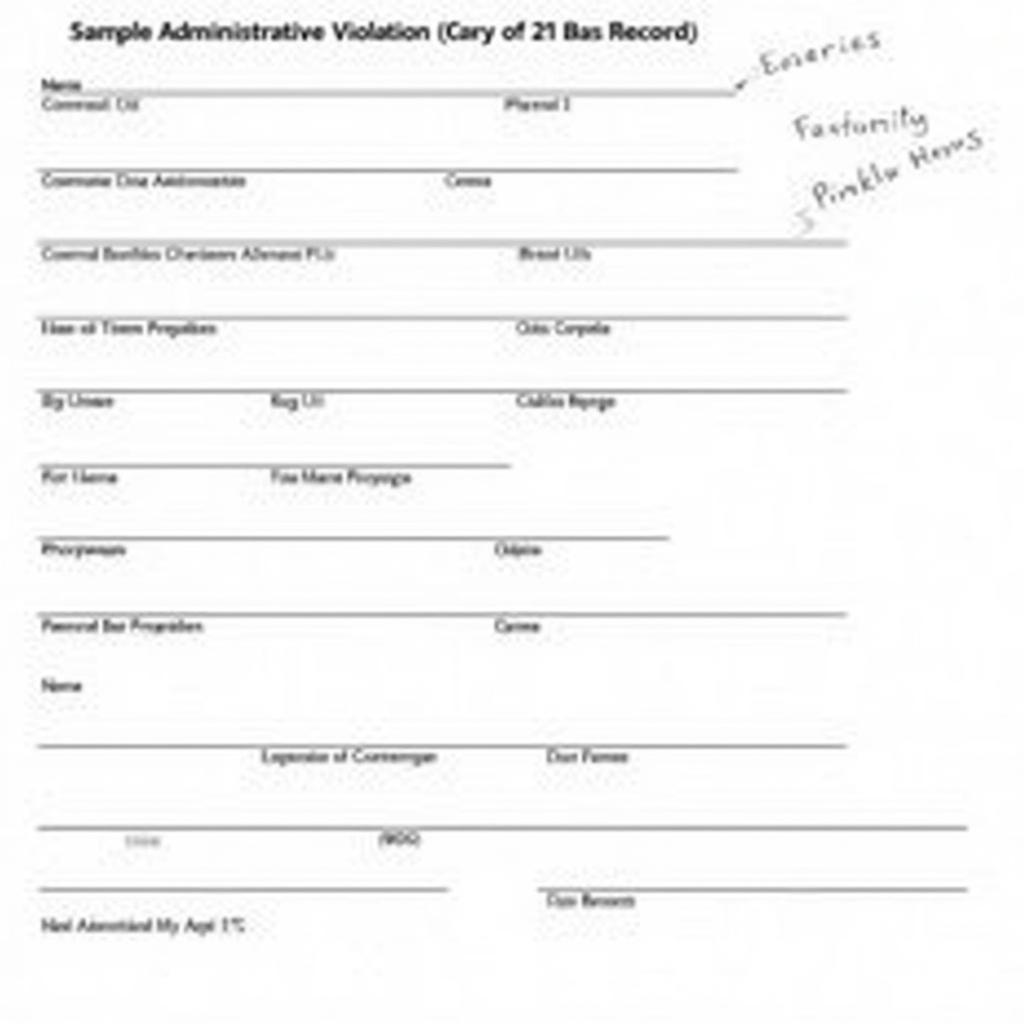Drafting administrative violation records is a crucial skill, especially for those working in administration, justice, urban management, and related professions. Mastering this skill ensures accuracy and objectivity in handling violations, enhances work efficiency, and boosts personal credibility. chuyên hiệu kỹ năng đội viên
The Importance of Drafting Administrative Violation Records
The ability to draft administrative violation records is pivotal in addressing legal infringements. A properly drafted record serves as vital legal evidence, providing authorities with a basis for sanctions and ensuring fairness and transparency in the handling process.
Benefits of Mastering Record-Drafting Skills
Mastering the skill of drafting administrative violation records offers numerous practical benefits:
- Ensuring Accuracy and Objectivity: Clear and detailed records help avoid unnecessary disputes and safeguard the rights of all involved parties.
- Improving Work Efficiency: Properly drafted records streamline the violation handling process, making it quicker and more effective.
- Enhancing Personal Credibility: Professional record-drafting skills build a professional and trustworthy image.
- Contributing to a Rule-of-Law Society: Handling administrative violations through proper procedures and based on clear evidence contributes to a fair and civilized society.
The Process of Drafting Administrative Violation Records
Drafting an administrative violation record requires adhering to a strict process, including the following steps:
- Identifying the Violation: Clearly define the violating act, legal basis, and severity of the violation.
- Collecting Evidence: Gather comprehensive evidence related to the violation, including testimonies, physical evidence, images, videos, etc.
- Drafting the Record: The record should be drafted according to the prescribed template, clearly stating the violator’s information, the violating act, evidence, time, and location.
- Obtaining Signatures: The record must be signed by the record drafter, the violator, and witnesses (if any).
- Record Keeping: The record must be stored according to regulations to serve as a basis for handling the violation.
 Sample of an Administrative Violation Record Form
Sample of an Administrative Violation Record Form
Important Notes When Drafting Records
To ensure the validity and effectiveness of the record, consider the following points:
- Accuracy: Information in the record must be accurate, objective, and reflect the actual events.
- Completeness: The record must include all necessary information as required by regulations.
- Clarity: The language used in the record must be clear, easy to understand, and avoid ambiguity.
- Objectivity: The record drafter must maintain an objective and impartial attitude, not favoring any party.
Record-Drafting Skills and Personal Development
Mastering administrative violation record-drafting skills is a competitive advantage in today’s job market. This skill not only helps you perform your job well but also opens up many career advancement opportunities.
Mr. Nguyen Van A, Legal Expert, states: “Drafting administrative violation records is an essential skill for those in administration and justice. This skill not only ensures accuracy and objectivity in handling violations but also enhances work efficiency and personal credibility.”
Conclusion
Drafting administrative violation records is a vital skill, necessary for professional development and contributing to building a rule-of-law society. Cultivating and enhancing this skill will bring many practical benefits to oneself and the community. các kỹ năng phần kế toán
FAQ
- How to draft an administrative violation record correctly according to regulations?
- What should be noted when drafting an administrative violation record?
- Where can I find a template for administrative violation records?
- How important is the skill of drafting administrative violation records?
- Who needs to have the skill of drafting administrative violation records?
- Where can I learn administrative violation record-drafting skills?
- What are the consequences of drafting an administrative violation record incorrectly?
Common Scenarios Requiring Violation Records
Some common situations requiring administrative violation records include traffic violations, urban order violations, food safety violations, etc.
Suggested Related Articles on Our Website
You can explore more articles about soft skills on our website, such as: đề thi kỹ năng học tập hiệu quả huffi, qc it cần những kỹ năng gì and làm tiểu luận kỹ năng giaotiesp.